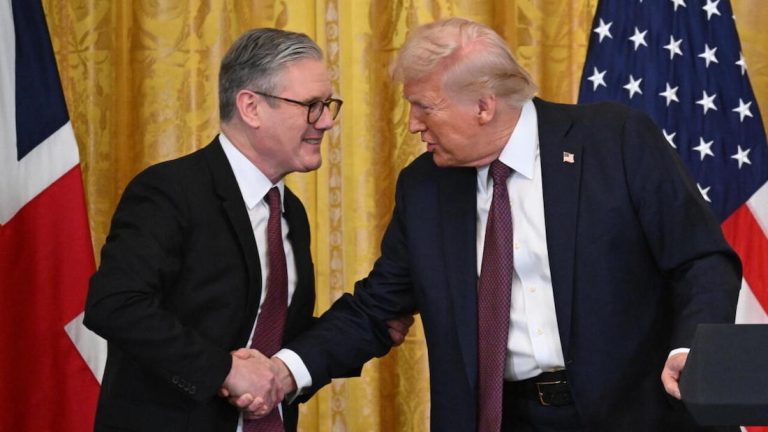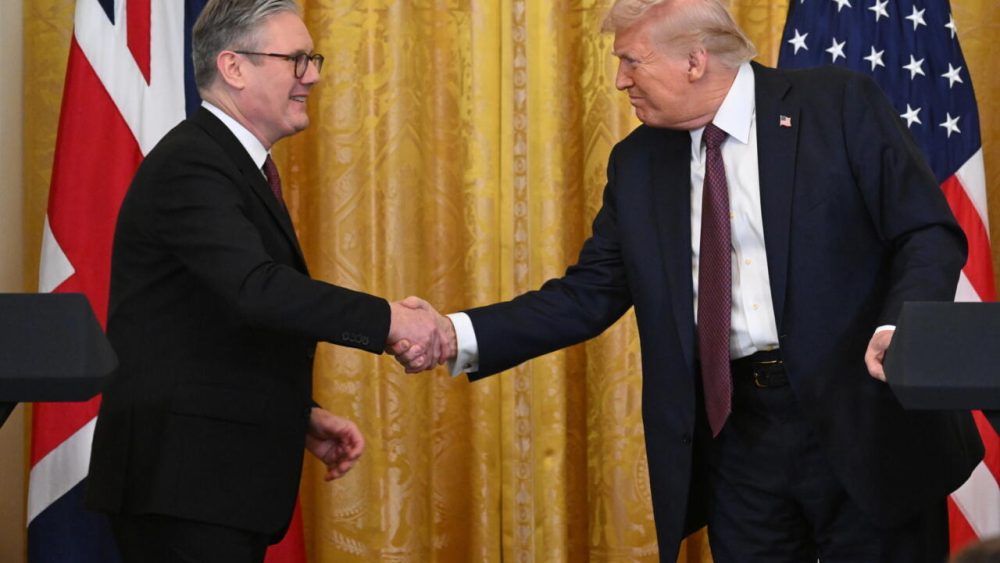
Who Is Keir Starmer and What Does His Leadership Mean for U.S. – U.K. Relations in the Age of Trump?
London, U.K. — As the world navigates the shifting sands of global politics, the “special relationship” between the United States and the United Kingdom remains a cornerstone of Western diplomacy.
But with new political leaders, rising tariffs, and growing transatlantic cultural migrations, many are asking what the U.S.-U.K. alliance looks like today—and what role Keir Starmer plays in shaping it.
Who exactly is Keir Starmer?
Keir Starmer is the leader of the U.K.’s Labour Party, serving as Leader of the Opposition since April 2020.
Formerly a human rights lawyer and Director of Public Prosecutions, Starmer is known for his methodical, measured approach to politics. He succeeded Jeremy Corbyn, a more radical figure who led Labour to historic defeats.
Starmer has since worked to steer the party back toward the political center, seeking to regain the trust of voters who had turned away.
Though Labour is often compared to the Democratic Party in the U.S., the comparison isn’t perfect.
Labour is a social democratic party rooted in trade unionism and nationalized industries, while U.S. Democrats span a broader ideological range. Still, both parties advocate for stronger social safety nets, climate action, and more progressive taxation.
Starmer and Trump: A Cold Relationship?
Starmer has had little direct engagement with Donald Trump, but their political worldviews sharply contrast.
Trump’s populist, nationalist rhetoric stands in opposition
to Starmer’s pro-internationalism and institutional respect
In public statements, Starmer has criticized Trump’s record on democracy, race, and climate change. Relations between the Labour leader and a Trump White House are cordial but frosty.

Despite this, the historic alliance between the two nations often transcends individual personalities.
Defense cooperation, intelligence sharing, and shared economic interests continue regardless of political leadership. Yet, recent actions around tariffs and trade have caused tremendous friction.
The post-Brexit U.K. seeks favorable trade terms with the U.S., but Trump’s America First stance has complicated negotiations. British exporters, particularly in agriculture and manufacturing, are feeling the pressure.
A Shifting Relationship?
The U.S.-U.K. alliance has deep historical roots, forged in the trenches of World War I and solidified during World War II.
The “special relationship” became a diplomatic buzzword through the Cold War and into the 21st century. Today, it faces new tests—not from armed conflict, but from economic competition and divergent political ideologies.
Can it survive Donald Trump?
One of the most visible signs of this changing dynamic is the migration trend among liberal-leaning Americans uneasy with Trump-era politics. Some are choosing to relocate to the U.K., attracted by its public healthcare, gun control laws, and perceived political stability.
Americans in the U.K.: Culture Shock or Calm?
Relocating Americans often arrive with relief, seeking respite from U.S. political turbulence. “I feel like I can breathe here,” says Jessica M., a former New Yorker now living in Manchester. “It’s not perfect, but it feels less chaotic.”
However, culture shock is real.
Many newcomers wrestle with Britain’s reserved social norms, slower bureaucracy, and frequent anti-American sentiment. Some are surprised to find that universal healthcare often means longer wait times, or that social class and regional accents carry more weight than expected.
Still, many say the trade-offs are worth it. “It’s quieter, more predictable,” says Ben T., a tech worker from San Francisco. “I miss certain things about home, but I sleep better at night.”
What’s Next for Starmer—and the U.S.-U.K. Relationship?

Starmer’s focus remains domestic following the general election that saw Labour return to power after more than a decade in opposition.
His stance on trade, immigration, and foreign policy shapes not just Britain’s future but its role in global affairs—including its relationship with the United States.
Following Trump’s victory, and Starmer becoming Prime Minister, the dynamics between their administrations is more distant than warm.
Yet, history shows that even when leaders differ, the institutional relationship between the U.S. and U.K. often endures.
Whether in war, peace, or global uncertainty, the transatlantic bond remains—complex, evolving, and as essential as ever.
U.S. – U.K. “Special Relationship” Now Tested by Trump Tariffs (April 7, 2025)
#KeirStarmer #USUKRelations #AmericanExpats
#TrumpEra #UKPolitics #LabourParty #SpecialRelationship
#GlobalPolitics #BrexitAmerica #TransatlanticTies
Tags: Keir Starmer, Donald Trump, U.S.-U.K. Relations, Labour Party, American Expats,
Brexit, Trade Tariffs, Culture Shock, British Politics, Transatlantic Alliance
